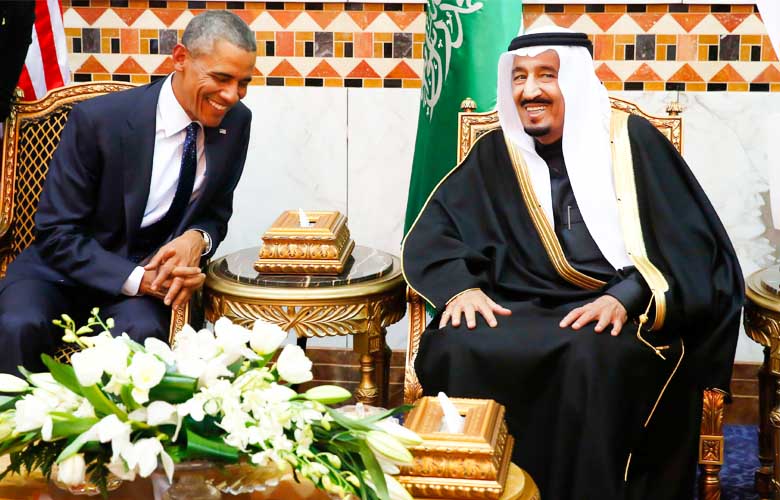AhlulBayt News Agency - In a move likely to put further strains on, if not end, US-Saudi relations, the Obama administration is expected to soon release documents implicating the Saudis with the al-Qaeda terrorists who carried out the 9/11 attacks.
The documents which contain information from the joint congressional inquiry into "specific sources of foreign support for some of the Sept. 11 hijackers while they were in the United States," may shed light on possible Saudi connections to the attackers.
Riyadh has not taken the news lightly. Instead it warned of an impending retaliation should Congress pass a bipartisan bill--that would allow victims of 9/11 and other terrorist attacks to sue foreign governments-- in the form of financial punishment.
Saudi foreign minister Adel al-Jubeir warned U.S. lawmakers during a visit to Washington that Saudi Arabia will sell up to $750bn in assets in the United States in reprisal.
Gulf-owned media outlets did not attempt to hide their fury.
Khalaf Al-Harbi, a columnist for the official Saudi daily ‘Okaz, wrote an article questioning the sudden change in Washington’s attitude toward Riyadh.
“Why did it choose Saudi Arabia, of all [countries], as its ally in its war on terror and rely on it heavily in its fight against Al-Qaeda?”
“Has mother America become schizophrenic, that it now accuses us of backing our common enemy?!” Harbi asks.
In the Bahraini daily Al-Watan, Faisal Al-Sheikh construed Washington’s recent decisions to what he described as Saudi’s emergence as the “primary force” in the Arab world. He attributed US warming relations with Egypt and Turkey to this reason.
“Washington cannot stand idly by and watch this happen,” Sheikh writes, hence Congress’ bill which serves “the domination[-oriented] trends of the White House, even if President Obama is trying – like in some pathetically directed movie scene – to seem as though he is trying to dissuade Congress from passing this bill.”
Meanwhile mainstream Western media launched propaganda war against Al Saud.
The Independent cited mayor of New York at the time of attack reporting than "a Saudi prince had given him a check for $10m (£7m) in an effort to persuade him to deflect attention away from the Kingdom. The former mayor said he returned the check after tearing it up. He declared: ‘His money he can keep and go burn it in hell. The American people need to know exactly what was the role of the Saudi Arabia government in the attacks: we are entitled to know who killed our loved ones and who almost killed us all.’”
Saudi’s part in the 9/11 attacks is not impossible to believe. It is after all the kingdom of extremist ideology and exporter of Wahhabism. But the underlying question is: why has the US decided to publicize Saudi’s role in 9/11 after such a long time?
Then US president, George Bush, claimed the publication of this part of the report would damage America’s national security by revealing “sources and methods that would make it harder for us to win the War on Terror”.
Ironically, the US has been dealing with the source of terror in order to “defeat” it.
This, however, doesn’t answer the question. What is beyond Obama’s less than enthusiastic relationship with the Saudi royal family compared to the Bush era, goes back to the root of every state, and that is the economy. And what is the Saudi regime economy without its oil?
Indeed, oil has been the fabric that tied the two allies together even to the point of one covering up the mischief of the other. But for more than a year now, marks of rupture have been visible on this fabric.
The US has recently become less dependent on Saudi oil which means that the Americans don’t have to put up with the monarchy’s pressure anymore.
In a sign that Riyadh is beginning to feel the heat of this, its cabinet agreed to implement a broad reform plan known as Vision 2030. This plan aims to diversify the economy to fight the state’s addiction to oil exports.
Therefore, with the Obama administration realizing the prospects of a Saudi-free policy and the Saudis becoming aware of this change, only time will tell whether the release of these documents will prove to be detrimental to US-Saudi ties.
/129

